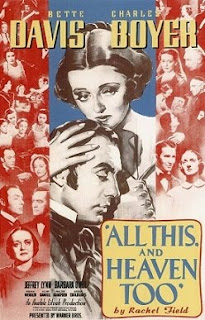1940 - Rebecca

Another week of My Fair Lady performances nearly over and since this project is moving at a more leisurely pace during this period, it means you have plenty more time to vote on the next year of review. We're heading to the 1990s next and the poll is over there to your right. This week, I managed to find some time to watch the eventual winner of the 1940 Best Picture race... Rebecca Director : Alfred Hitchcock Screenplay : Philip MacDonald, Michael Hogan, Robert E. Sherwood, Joan Harrison Starring : Laurence Olivier, Joan Fontaine, George Sanders, Judith Anderson Academy Awards : 11 nominations 2 wins, including Best Picture Yet another 1940 nominee dealing with class differences, Rebecca relates the tale of Max de Winter (Olivier), an upper class gentleman who begins a love affair with a delightful young woman who apparently has no given name (Fontaine). The whirlwind romance proceeds to marriage and Max brings his new bride to his country home, which does have a name - Manderley....



